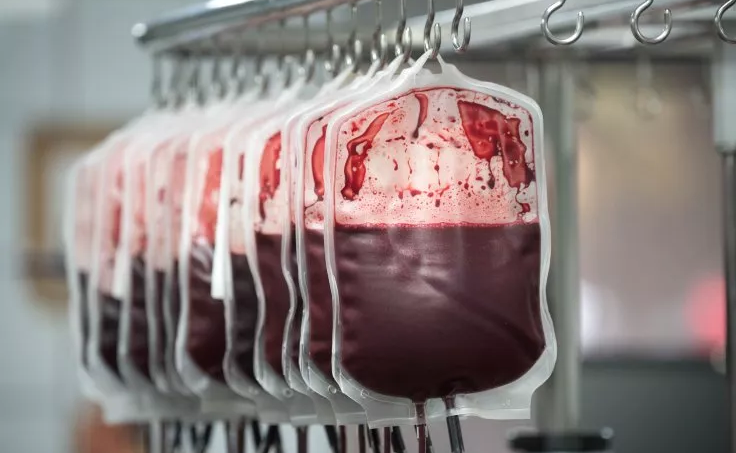Blood transfusions are routine medical procedures around the world. Imagine being in the hospital and in need of blood. Chances are you’ll undergo a transfusion without giving it a second thought.
However, new research suggests there’s the possibility the transfusion might contain more than just blood. Researchers from Oregon State University (OSU), writing for the Journal of Pharmaceutical and Biomedical, were stunned by the level of pharmaceuticals they found in what was assumed clean batches of blood. What was specifically interesting was the high concentrations of cough medicine and anti-anxiety medication. Xanax in the transfusion blood supply is not something you’d expect heading into the hospital.
RELATED STORY:
The scientists tested random samples of blood donated and ready for transfusion. In the “pure” blood, they discovered around seventy percent of the samples to contain traces of Xanax. Additionally, if that wasn’t enough to show you that Americans love drugs, the test reported all eighteen batches contained caffeine. Eight samples (forty-four percent) contained dextromethorphan, an over-the-counter cough medicine. Thirteen samples (seventy-two percent) contained alprazolam, the anti-anxiety medication better known as Xanax.
The team’s research set out to test a new method for determining the effects different botanical supplements (such as echinacea, CBD oil, and ginko) have on the ways the body metabolizes various drugs since botanicals can affect enzymes in the body in the same manner as manufactured drugs. Therefore, an interaction between the two can cause problems related to drug metabolization in people using both. Understanding this is important as the use of natural botanicals is (thankfully) increasing.

We are very proud of our organic line of products, including CBD oils and tinctures, natural supplements, and more. XO ~ Erin
Luying Chen, co-author of the study and a PhD student at OSU, said:
“From a ‘contamination’ standpoint, caffeine is not a big worry for patients, though it may be a commentary on current society. But the other drugs being in there could be an issue for patients, as well as posing a problem for those of us doing this type of research because it’s hard to get clean blood samples.”1
The director of OSU’s Linus Pauling Institute, Richard van Breemen, brought up another interesting point, adding:
“Another thing to consider is that we found drugs that we just happened to be looking for in doing the drug interaction assay validation – how many others are in there too that we weren’t looking for?”1
RELATED STORY:
While these findings are surprising, they might not tell the whole story. Noteworthy is the fact the test consisted of only eighteen blood contributions. Because the study focused on such a small quantity of samples, it’s difficult to say how widespread the issue of drug contamination in donated blood is without additional testing over a much more extensive range of sources.
Still, the study illustrates the scope of America’s addiction problem. Estimates reveal that almost half of all adults in the U.S. use prescription medications.












